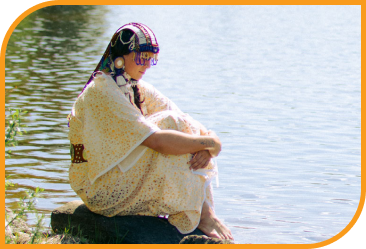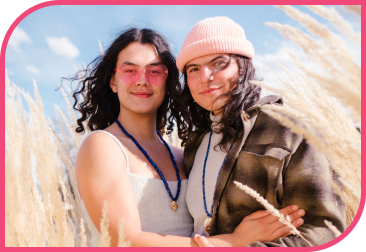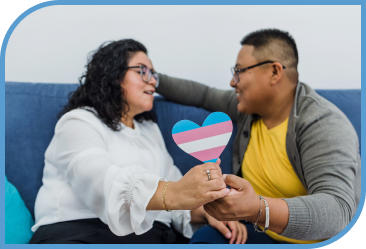Call 988 and press 4 for the Native and Strong Lifeline, available 24/7.

Before colonization, Two-Spirit people were accepted, supported and honored in most tribes. Many held sacred or ceremonial roles such as counselors, healers, pipe carriers or visionaries. Others were great warriors, dreamers, medicine people or spiritual advisors.
Two-Spirit people have existed far longer than this modern-day, generalized label. The term “two spirit” reflects hundreds of diverse identities related to gender and sexuality within Indigenous cultures—it’s also a synonym for hundreds of words and phrases used in tribal languages for these identities. And now, Two-Spirit people are reclaiming these identities and reviving these roles.
Two-Spirit individuals know best what being two spirit means to them. Some Two-Spirit people also use the words gay, lesbian, bisexual or trans to describe their sexual orientation or gender—while others, do not. But being two spirit is not the same as being gay or trans—it’s a way of reclaiming Native community roles and reconnecting with traditional values, responsibilities, and lifeways that have existed for millennia.
Two-Spirit people can face discrimination or abuse. Strong and accepting relationships with friends, relatives, tribes and communities help protect them.

Two-Spirit people can gain strength by talking with family and community members about their identity in a supportive environment. By feeling comfortable with who they are, they build resilience.

Advocate for safe schools for gender-diverse and sexually-diverse people. Help make sure health care providers who serve Native people are trained in gender diversity and that Two-Spirit people have fair access to safe housing and restrooms.

Engage in those positive practices alongside your friend or relative. Learning and educating others about traditional Two-Spirit roles in our cultures helps erase stigma.
Stand up for your Two-Spirit relatives. Talk with others about discrimination and about treating Two-Spirit people with respect. When you hear something derogatory, say something—stand up for your Two-Spirit relatives.
Native and Strong Lifeline
If you’re thinking about suicide or struggling emotionally or mentally, talk with a friend or relative, or call the Native and Strong Lifeline:
Finding support for houselessness, unemployment, and other hardships can improve your mental health. The Native Resource Hub can help you find housing, food, utility assistance or other resources, including cultural resources.